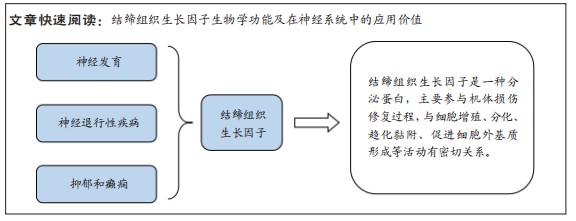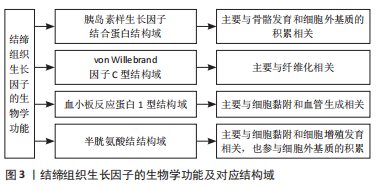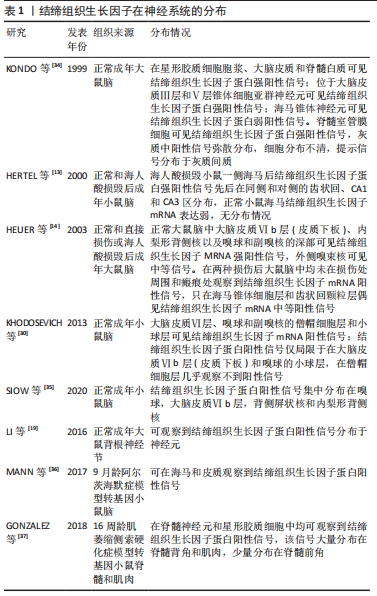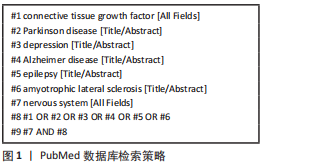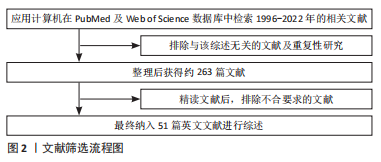[1] GONZALEZ D, BRANDAN E. CTGF/CCN2 from Skeletal Muscle to Nervous System: Impact on Neurodegenerative Diseases. Mol Neurobiol. 2019; 56(8):5911-5916.
[2] SUN C, ZHANG H, LIU X. Emerging role of CCN family proteins in fibrosis. J Cell Physiol. 2021;236(6):4195-4206.
[3] SHEN YW, ZHOU YD, CHEN HZ, et al. Targeting CTGF in Cancer: An Emerging Therapeutic Opportunity. Trends Cancer. 2021;7(6):511-524.
[4] CHEN Z, ZHANG N, CHU HY, et al. Connective Tissue Growth Factor: From Molecular Understandings to Drug Discovery. Front Cell Dev Biol. 2020;8: 593269.
[5] ZAYKOV V, CHAQOUR B. The CCN2/CTGF interactome: an approach to understanding the versatility of CCN2/CTGF molecular activities. J Cell Commun Signal. 2021;15(4):567-580.
[6] BARBOSA R, ACEVEDO LA, MARMORSTEIN R. The MEK/ERK Network as a Therapeutic Target in Human Cancer. Mol Cancer Res. 2021;19(3):361-374.
[7] LEASK A. CCN2 in Skin Fibrosis. Methods Mol Biol. 2017;1489:417-421.
[8] MOUSSAD EE, BRIGSTOCK DR. Connective tissue growth factor: what’s in a name? Mol Genet Metab. 2000;71(1-2):276-292.
[9] VALLE-TENNEY R, REBOLLEDO DL, LIPSON KE, et al. Role of hypoxia in skeletal muscle fibrosis: Synergism between hypoxia and TGF-β signaling upregulates CCN2/CTGF expression specifically in muscle fibers. Matrix Biol. 2020;87:48-65.
[10] BARBE MF, HILLIARD BA, AMIN M, et al. Blocking CTGF/CCN2 reverses neural fibrosis and sensorimotor declines in a rat model of overuse-induced median mononeuropathy. J Orthop Res. 2020;38(11):2396-2408.
[11] FRAZIER K, WILLIAMS S, KOTHAPALLI D, et al. Stimulation of fibroblast cell growth, matrix production, and granulation tissue formation by connective tissue growth factor. J Invest Dermatol. 1996;107(3):404-411.
[12] STICHEL CC, MüLLER HW. The CNS lesion scar: new vistas on an old regeneration barrier. Cell Tissue Res. 1998;294(1):1-9.
[13] HERTEL M, TRETTER Y, ALZHEIMER C, et al. Connective tissue growth factor: a novel player in tissue reorganization after brain injury? Eur J Neurosci. 2000;12(1):376-380.
[14] HEUER H, CHRIST S, FRIEDRICHSEN S, et al. Connective tissue growth factor: a novel marker of layer VII neurons in the rat cerebral cortex. Neuroscience. 2003;119(1):43-52.
[15] IVKOVIC S, YOON BS, POPOFF SN, et al. Connective tissue growth factor coordinates chondrogenesis and angiogenesis during skeletal development. Development. 2003;130(12):2779-2791.
[16] OU SC, BAI KJ, CHENG WH, et al. TGF-β Induced CTGF Expression in Human Lung Epithelial Cells through ERK, ADAM17, RSK1, and C/EBPβ Pathways. Int J Mol Sci. 2020;21(23):9084.
[17] ABREU JG, KETPURA NI, REVERSADE B, et al. Connective-tissue growth factor (CTGF) modulates cell signalling by BMP and TGF-beta. Nat Cell Biol. 2002;4(8): 599-604.
[18] BRIGSTOCK DR. Connective tissue growth factor (CCN2, CTGF) and organ fibrosis: lessons from transgenic animals. J Cell Commun Signal. 2010;4(1): 1-4.
[19] LI Q, CHEN J, CHEN Y, et al. Chronic sciatic nerve compression induces fibrosis in dorsal root ganglia. Mol Med Rep. 2016;13(3):2393-2400.
[20] PI L, DING X, JORGENSEN M, et al. Connective tissue growth factor with a novel fibronectin binding site promotes cell adhesion and migration during rat oval cell activation. Hepatology. 2008;47(3):996-1004.
[21] HUANG Y, WANG Y, TANG J, et al. CAM-DR: Mechanisms, Roles and Clinical Application in Tumors. Front Cell Dev Biol. 2021;9:698047.
[22] WANG GB, ZHOU XY, YUAN T, et al. Significance of serum connective tissue growth factor in patients with hepatocellular carcinoma and relationship with angiogenesis. World J Surg. 2010;34(10):2411-2417.
[23] ZENG H, YANG Z, XU N, et al. Connective tissue growth factor promotes temozolomide resistance in glioblastoma through TGF-β1-dependent activation of Smad/ERK signaling. Cell Death Dis. 2017;8(6):e2885.
[24] SONG Y, KIM JS, CHOI EK, et al. TGF-β-independent CTGF induction regulates cell adhesion mediated drug resistance by increasing collagen I in HCC. Oncotarget. 2017;8(13):21650-21662.
[25] CHAUHAN VP, MARTIN JD, LIU H, et al. Angiotensin inhibition enhances drug delivery and potentiates chemotherapy by decompressing tumour blood vessels. Nat Commun. 2013;4:2516.
[26] ROMÃO LF, MENDES FA, FEITOSA NM, et al. Connective tissue growth factor (CTGF/CCN2) is negatively regulated during neuron-glioblastoma interaction. PLoS One. 2013;8(1):e55605.
[27] KINASHI H, ITO Y, SUN T, et al. Roles of the TGF-β⁻VEGF-C Pathway in Fibrosis-Related Lymphangiogenesis. Int J Mol Sci. 2018;19(9):48-65.
[28] JOVANOVIC VM, SALTI A, TILLEMAN H, et al. BMP/SMAD Pathway Promotes Neurogenesis of Midbrain Dopaminergic Neurons In Vivo and in Human Induced Pluripotent and Neural Stem Cells. J Neurosci. 2018;38(7):1662-1676.
[29] LOWERY JW, ROSEN V. The BMP Pathway and Its Inhibitors in the Skeleton. Physiol Rev. 2018;98(4):2431-2452.
[30] KHODOSEVICH K, LAZARINI F, VON ENGELHARDT J, et al. Connective tissue growth factor regulates interneuron survival and information processing in the olfactory bulb. Neuron. 2013;79(6):1136-1151.
[31] MUROMACHI K, KAMIO N, MATSUKI-FUKUSHIMA M, et al. CCN2/CTGF expression via cellular uptake of BMP-1 is associated with reparative dentinogenesis. Oral Dis. 2015;21(6):778-784.
[32] MUNDY C, GANNON M, POPOFF SN. Connective tissue growth factor (CTGF/CCN2) negatively regulates BMP-2 induced osteoblast differentiation and signaling. J Cell Physiol. 2014;229(5):672-681.
[33] XU R, ZHANG Z, TOFTDAL MS, et al. Synchronous delivery of hydroxyapatite and connective tissue growth factor derived osteoinductive peptide enhanced osteogenesis. J Control Release. 2019;301:129-139.
[34] KONDO Y, NAKANISHI T, TAKIGAWA M, et al. Immunohistochemical localization of connective tissue growth factor in the rat central nervous system. Brain Res. 1999;834(1-2):146-151.
[35] SIOW PF, TSAO CY, CHANG HC, et al. Mice Lacking Connective Tissue Growth Factor in the Forebrain Exhibit Delayed Seizure Response, Reduced C-Fos Expression and Different Microglial Phenotype Following Acute PTZ Injection. Int J Mol Sci. 2020;21(14):4921.
[36] MANN AP, SCODELLER P, HUSSAIN S, et al. Identification of a peptide recognizing cerebrovascular changes in mouse models of Alzheimer’s disease. Nat Commun. 2017;8(1):1403.
[37] GONZALEZ D, REBOLLEDO DL, CORREA LM, et al. The inhibition of CTGF/CCN2 activity improves muscle and locomotor function in a murine ALS model. Human Mol Genet. 2018;27(16):2913-2926.
[38] SPLIET WG, ARONICA E, RAMKEMA M, et al. Increased expression of connective tissue growth factor in amyotrophic lateral sclerosis human spinal cord. Acta Neuropathol. 2003;106(5):449-457.
[39] YU IS, CHANG HC, CHEN KC, et al. Genetic Elimination of Connective Tissue Growth Factor in the Forebrain Affects Subplate Neurons in the Cortex and Oligodendrocytes in the Underlying White Matter. Front Neuroanat. 2019;13:16.
[40] STRITT C, STERN S, HARTING K, et al. Paracrine control of oligodendrocyte differentiation by SRF-directed neuronal gene expression. Nat Neurosci. 2009; 12(4):418-427.
[41] OHKAWARA B, KOBAYAKAWA A, KANBARA S, et al. CTGF/CCN2 facilitates LRP4-mediated formation of the embryonic neuromuscular junction. EMBO Rep. 2020;21(8):e48462.
[42] UEBERHAM U, UEBERHAM E, GRUSCHKA H, et al. Connective tissue growth factor in Alzheimer’s disease. Neuroscience. 2003;116(1):1-6.
[43] MCCLAIN JA, PHILLIPS LL, FILLMORE HL. Increased MMP-3 and CTGF expression during lipopolysaccharide-induced dopaminergic neurodegeneration. Neurosci Lett. 2009;460(1):27-31.
[44] BLOCK ML, HONG JS. Chronic microglial activation and progressive dopaminergic neurotoxicity. Biochem Soc Trans. 2007;35(Pt 5):1127-1132.
[45] DUTTA G, ZHANG P, LIU B. The lipopolysaccharide Parkinson’s disease animal model: mechanistic studies and drug discovery. Fundam Clin Pharmacol. 2008; 22(5):453-464.
[46] YANG CN, WU MF, LIU CC, et al. Differential protective effects of connective tissue growth factor against Aβ neurotoxicity on neurons and glia. Hum Mol Genet. 2017;26(20):3909-3921.
[47] TURNER CA, SHARMA V, HAGENAUER MH, et al. Connective Tissue Growth Factor Is a Novel Prodepressant. Biol Psychiatry. 2018;84(8):555-562.
[48] PEI G, XU L, HUANG W, et al. The protective role of microRNA-133b in restricting hippocampal neurons apoptosis and inflammatory injury in rats with depression by suppressing CTGF. Int Immunopharmacol. 2020; 78:106076.
[49] THIJS RD, SURGES R, O’BRIEN TJ, et al. Epilepsy in adults. Lancet. 2019;393(10172):689-701.
[50] GILLIAM FG, BLACK KJ, CARTER J, et al. A Trial of Sertraline or Cognitive Behavior Therapy for Depression in Epilepsy. Ann Neurol. 2019;86(4):552-560.
[51] RICHELDI L, FERNáNDEZ PéREZ ER, COSTABEL U, et al. Pamrevlumab, an anti-connective tissue growth factor therapy, for idiopathic pulmonary fibrosis (PRAISE): a phase 2, randomised, double-blind, placebo-controlled trial. Lancet Respir Med. 2020;8(1):25-33. |
